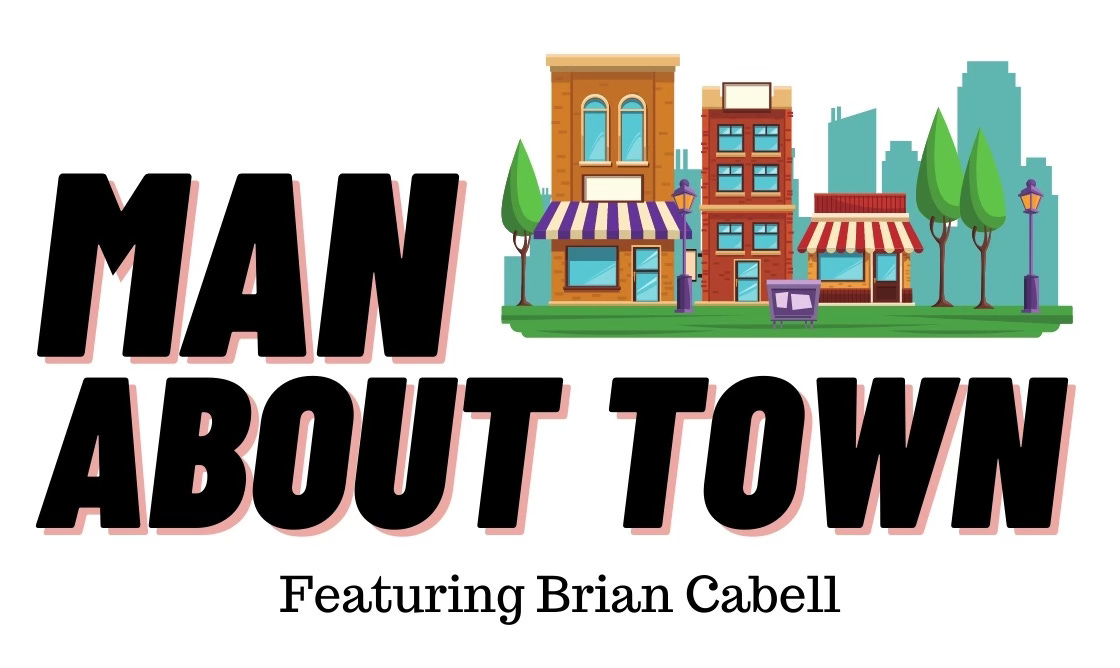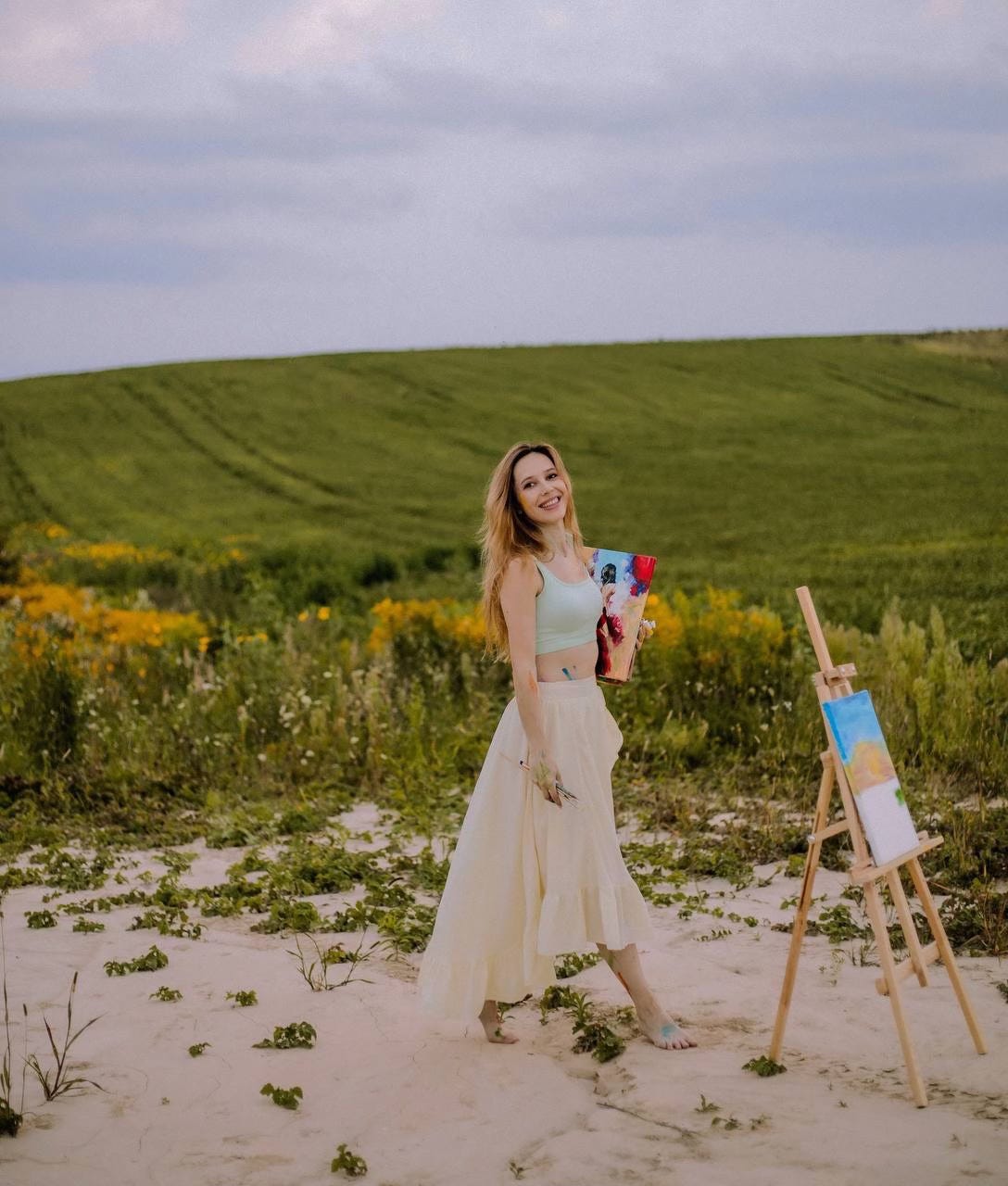From Ukraine to Marquette: A Story of War, Fear, and Perseverance
The Latest from Marquette, MI by Brian Cabell
FOR ALINA HUSEVYK, the memories remain vivid. “Every day, we needed to go to the bomb shelter,” she tells you. “They were bombing the electricity stations. It was very unsafe for me and my son…I worried about him every day….There was bombing and bombing and bombing.”
Alina is Ukrainian, 36-years-old, divorced, and now living with her 16-year-old son, Ruslan, in Marquette. They’re refugees, nearly 5000 miles from their war-torn homeland.
They arrived here last summer, beneficiaries of the Biden administration program “Uniting for Ukraine” which has relocated 240,0000 Ukrainians to cities and towns around the United States. A handful have been sent to the Upper Peninsula. But for all of them, including Alina and Ruslan, their situation remains precarious because they are technically on “humanitarian parole,” a status that generally lasts for no more than a year.
And—especially alarming—the Trump administration recently revoked that status for refugees from Cuba, Haiti, Nicaragua, and Venezuela. For now, fortunately, Ukrainian refugees can stay.
“Right now, I’m just waiting for a decision from the President of the United States,” Alina says. “I’m worried because I don’t know what will happen tomorrow or in the next minute…I just wait for a decision from Trump.”
She’s nervous, she says. She has panic attacks. She dreads being forced to go home where friends tell her, by email, that the bombing and the fighting go on, unabated.
“I want a life for my son. I want a future for him,” she tells you, her eyes almost pleading with you.
Their lives took a radical, and sorrowful, turn three years ago when the Russians invaded their country. The bombing started, civilians were dying. Alina’s father, a retired military man, helped her flee, driving Alina and Ruslan to the border with Poland, and from there they had to walk, carrying their belongings, twelve hours in the brutal cold of mid-winter, until they reached a refugee camp.
Eventually, they made their way to Riga, Latvia where locals sheltered, fed, and cared for them while the war raged on back home. But after six months, Alina decided to return because her grandmother, suffering from cancer, vitally needed medical help but couldn’t get any because of the constant bombing. Normal life was impossible.
Alina returned, and even though she had no medical training, she became her grandmother’s caregiver. She gave her regular morphine injections to relieve the pain amid the bombings, the chaos, the terror all around them. Her grandmother died six months later, and it was then that Alina again decided she had to leave; now she had an additional concern—her teenage son was nearing military age.
Through “Uniting for Ukraine”, she was able to book flights, with Ruslan, from Warsaw, Poland to Marquette.
Why Marquette? “Marquette was a very peaceful place, very beautiful, very similar like my region, a lot of lakes, a lot of nature, a lot of forests,” she says, a smile crossing her face. “It’s a very kind community here….I know the USA is very kind people.”
She and her son have been living with a Marquette host family for the last few months, but Alina is hoping to soon find separate housing for her and Ruslan. Transportation? Her new American friends raised funds to buy her a car.
She’s very adept with computers, and in Marquette, she’s tried to continue the work that she did in Ukraine—with the online gaming industry—but it’s been difficult. Still, she keeps at it.
But she has another idea, one that she hopes to pursue if her life ever calms down, if her legal status is ever stabilized here. “It’s my small dream to maybe open a small art cafe here,” she says, her smile returning. “Coffee with different cakes. Little snacks. And inspiration for artists. I’ve joined the art community here and I’ve met different artists.”
She’s an accomplished painter…and a dancer. She’ll be performing in the “Wizard of Oz” ballet production at Kaufman Auditorium on May 3rd. In spite of all the adversity she’s faced and still faces, she’s adapting to her new life in a foreign land.
And her son, Ruslan? While learning a new language as a sophomore at Marquette Senior High, he has, incredibly, made the honor roll. “And he has American friends,” Alina tells you proudly.
So much to be thankful for, and yet so much to frighten and depress her. “Every day I worry about news from my country and news from this country,” she says, glancing at her computer. “I am very nervous but I try to focus on situations I can change.”
She pauses and considers what she’ll say next. “I don’t like politics,” she finally says. “It’s not for me and my conversation. I don’t have strong feelings for Trump and Zelensky…It’s very hard for me…I need to be careful with what I say…”
True words.
For now—as she tells you earnestly but haltingly—she can only focus on trying, day by day, to forge a normal and peaceful life for her and her son in their new hometown 5000 miles away from a homeland that’s still living a nightmare.
HAIKU OF THE WEEK
Beyond fearsome bombs
Through the cold, scary unknown
A new life…and hope.
—Anonymous











Thank you so much for sharing this important story. Are you able to share ways that members of the Marquette community can help her to meet her goals?
Brian, your writing is usually entertaining and thought-provoking. But this article was truly amazing. My heart goes out to Alina and her son in these times. I hope our community can give back even a piece of what she lost.